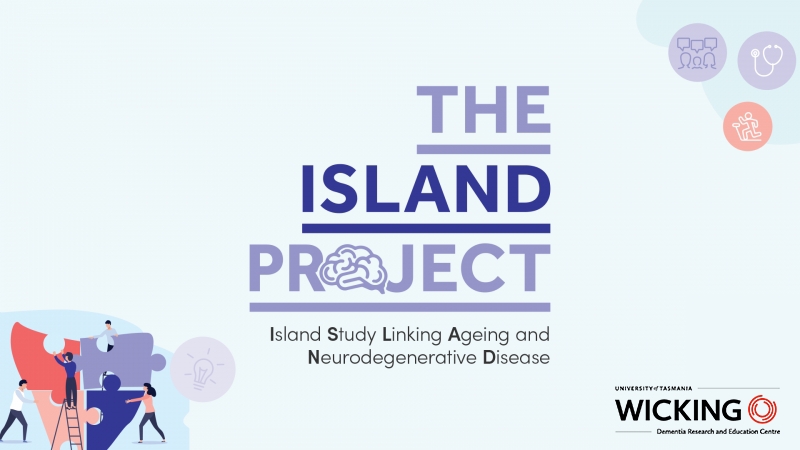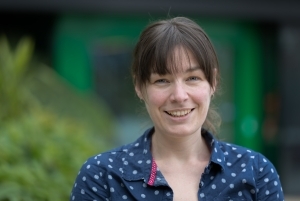| ISLAND Newsletter - February 2022 |
View in browser | Print |
 | | | 
Traumatic Brain Injury - learn about its link to dementia risk
My name is Dr Jenna Ziebell and I’m a senior lecturer in the Wicking Dementia Research and Education Centre. I have a strong interest in traumatic brain injury (TBI) - including the link between TBI and increased risk of developing dementia. TBI can be defined as an alteration in brain function that has been caused by external force. The most common causes of TBI include falls, motor vehicle accidents, assault, sports, among many others. Of the 69 million TBIs each year most TBIs are mild (concussion) and may not need hospital care, however all TBIs should have medical assessment regardless of how serious they may seem. In 2020, the Lancet listed TBI among its range of modifiable risk factors for dementia. In doing so, the Lancet article reviewed the best evidence into potential links between brain injury and dementia risk. In particular, a Danish study showing increased risk of dementia over a 10-year period in people over 50 who had experienced a head injury and a Swedish study that showed risk increases with the number and severity of head injuries a person has had. There is also emerging evidence in sports players of chronic traumatic encephalopathy, also known as CTE, one of the diseases which leads to dementia. We’ve developed a free, online TBI MOOC for anyone with an interest in TBI, brain science or brain health. The next TBI MOOC opens on 28 March 2022 and you can find further information and register via this link. I hope our TBI MOOC is of interest to you and that you will join me, and all the MOOC team, to discover more about TBI and how it affects the brain.
| | | 
Genetic Risk Factors for Dementia
We often get asked about genetic risk factors for dementia when we’re giving presentations or out and about in communities. Our response is that, whilst there can be a genetic link with dementia, for most of the population this is often not as strong as people might think and lifestyle factors are now also regarded as very important in contributing to a person’s risk. A genetic risk factor is an increased likelihood of developing dementia based on a person's inheritance of combinations of variations in genes. These variations in genetic coding are usually common throughout populations and typically work in combinations that either increase or decrease risk of dementia.
The best known genetic variation linked to risk relates to the Apolipoprotein E (APOE gene) which typically comes in three forms, known as ε2, ε3 and ε4. For example, carrying the APOE ε4 variation increases the risk of developing dementia later in life. In contrast, carrying another variation of the same gene (APOE ε2) can have a protective effect against developing dementia. It is important to note that carrying the APOE ε4 genetic variation adds risk but does not always lead to dementia and not having this risk factor does not guarantee healthy cognition. Therefore, genetic testing is not recommended, except in special circumstances. Current research, including from the Wicking Dementia Centre, has indicated there are a suite of genetic variations that contribute to risk of cognitive decline with ageing. It is also important to note that there are also abnormal genetic mutations, not just genetic variations, that have been identified that contribute to a high risk of conditions such as younger onset dementia. More importantly, genetics alone does not cause dementia which shows the significance of potentially modifiable risk factors for dementia. According to the Lancet Commission report ( midlife can reduce the risk of developing dementia. The good news is that reducing these potentially modifiable risk factors may be protective, even for people with an increased genetic risk of dementia. A recent study by Lourida and colleagues (Lourida et al. 2019) showed that a healthier lifestyle can lessen the risk of dementia regardless of genetic risk. Another good example of research has found that lifelong engagement in education and learning enhances cognitive reserve and reduces the risk of dementia attributable to genetic variations such asAPOE ε4) (Dekhtyar et a. 2019). Therefore, promoting cognitive reserve and a healthy lifestyle might be considered as ways to reduce risk of developing dementia, especially in people with higher genetic risk.
We hope you’ve found this informative. If you would like to read the studies we have mentioned in this article, please follow these links: - Dekhtyar et a. 2019 https://onlinelibrary-wiley-com.ezproxy.utas.edu.au/doi/10.1002/ana.25501 Lourida et al. 2019 https://jamanetwork.com/journals/jama/fullarticle/2738355
| | | 
How's your hearing?
Thursday 3rd March is World Hearing Day. Research has shown that hearing difficulties may reduce quality of life through social isolation, loneliness, depression and loss of independence. These factors may increase risk of developing dementia, but hearing loss can also place additional load on our brains as they work harder to process sounds. This additional load may mean there are fewer resources for memory and other cognitive functions. As Dementia Australia point out in this great information sheet (link), its important to remember that hearing loss is only a risk factor - having any form of hearing loss doesn't mean that a person will develop dementia. The friendly team from Hearing Australia often attend ISLAND events and we've all benefitted from the testing they offer. If you would like further information on hearing testing, contact your local team at Hearing Australia on 134 432. You can also read Elizabeth's story on the Hearing Australia website. Elizabeth experienced hearing loss while she was still working and she tells us how a little bit of help from an audiologist changed her life.
| | | 
COTA Tasmania would like to hear from you
COTA Tasmania is undertaking community consultation activities to support the development of the next Strategy for Older Tasmanians. They would like to H.E.A.R how you stay Healthy, Engaged and Resilient as you age and have developed a short survey to reach as many Tasmanians as possible. How can I get involved? You can contribute in the following ways: - Completing the survey– whether you have 2 minutes or 10 minutes to spare they’d love to hear your views (please share survey links as widely as you can)
- Phone or email COTA to have a hard copy of the survey posted to you – 62 313 265 / admin@cotatas.org.au
- Order some postcards to distribute in your workplace, local community group or local businesses - brigidw@cotatas.org.au
- Text your thoughts of what healthy ageing means to you to 0477 011 112
- Join in an online community discussion (APRIL and MAY dates TBC)
- Download and print a COTA HEAR A3 Poster to pop at your local club, work office, shop, or community centre so others are aware of the consultation.
COTA staff are collaborating with community organisations, neighbourhood houses and Councils to arrange in person events and activities in COVID safe environments. If you’d like to support us to reach Tasmanians in your area to hold a community conversation, please contact Brigid on brigidw@cotatas.org.au or 62 313 265.
| | ISLAND Project Partners | |
|  | |
The University of Tasmania received funding from the Australian Government. Views and conclusions expressed in this publication are those of its authors, and may not be the same as those held by the Department of Health.
|
|
Stay Connected:
|


|
islandproject.utas.edu.au
|
| |
|
|